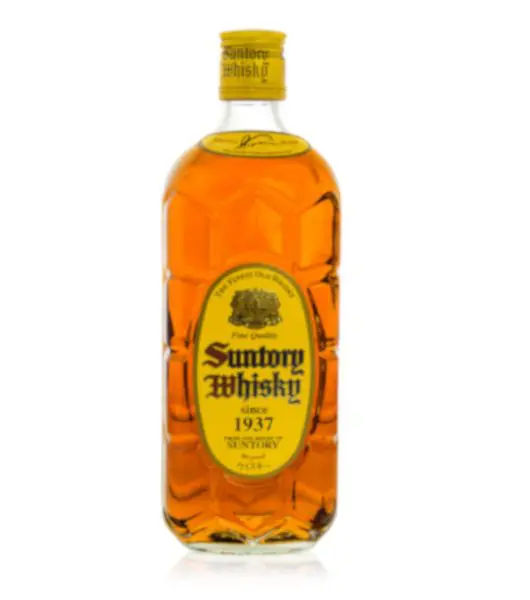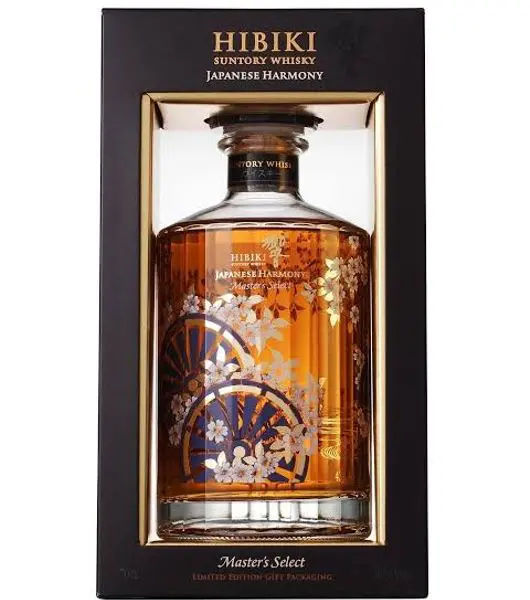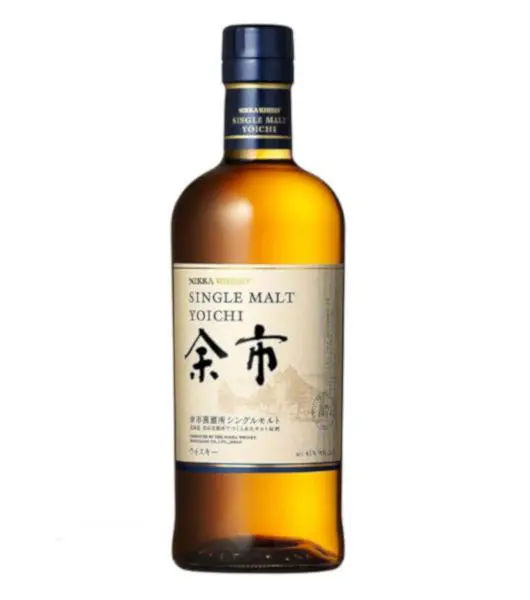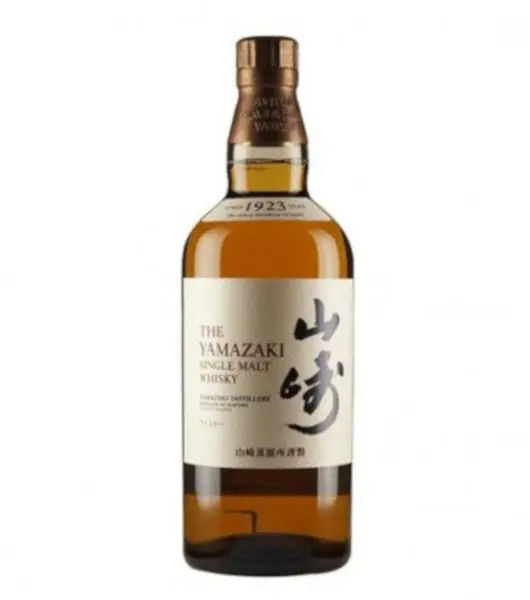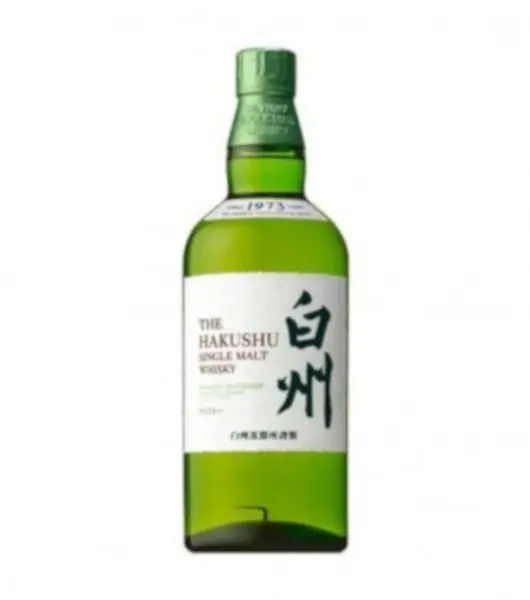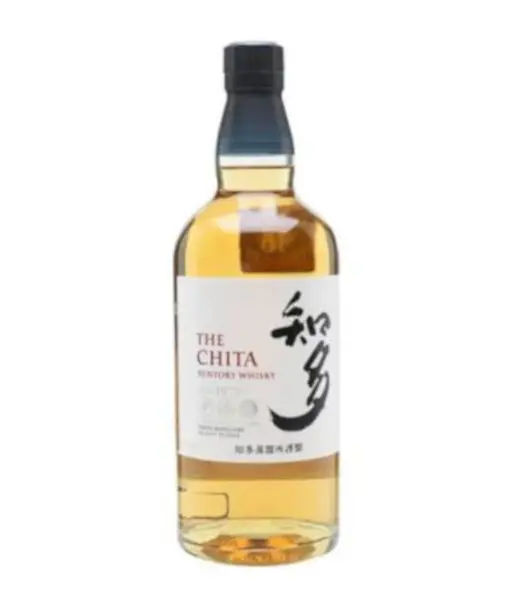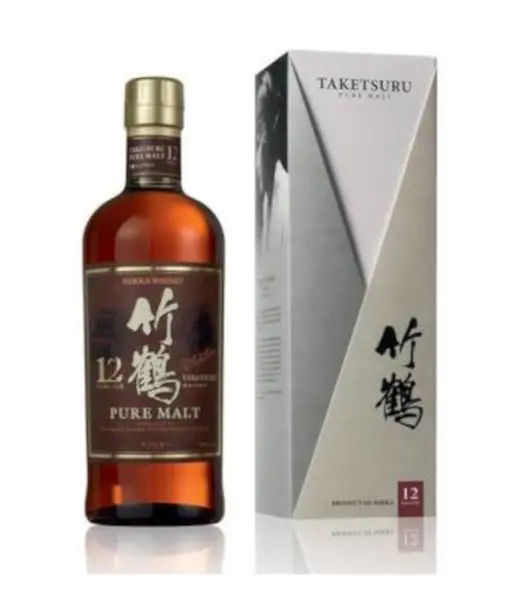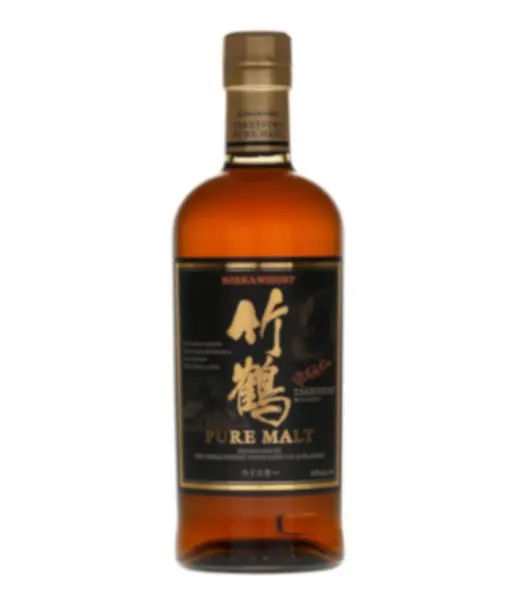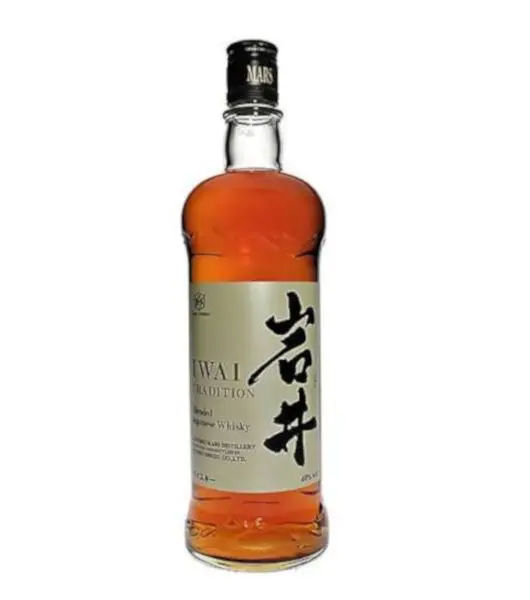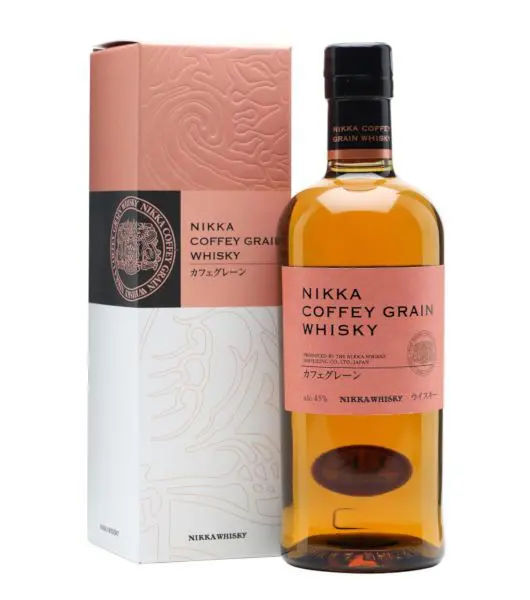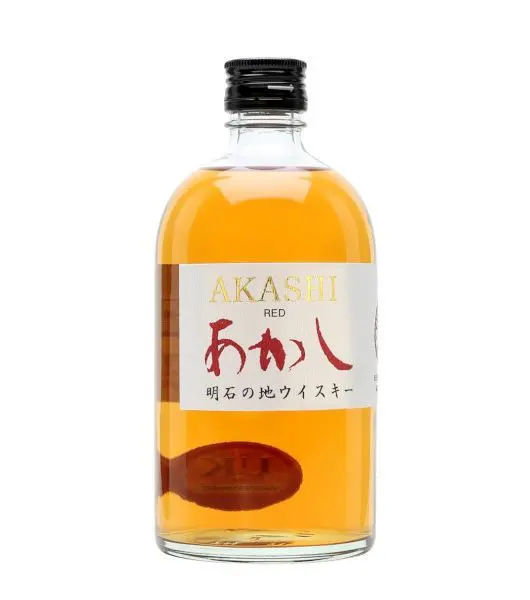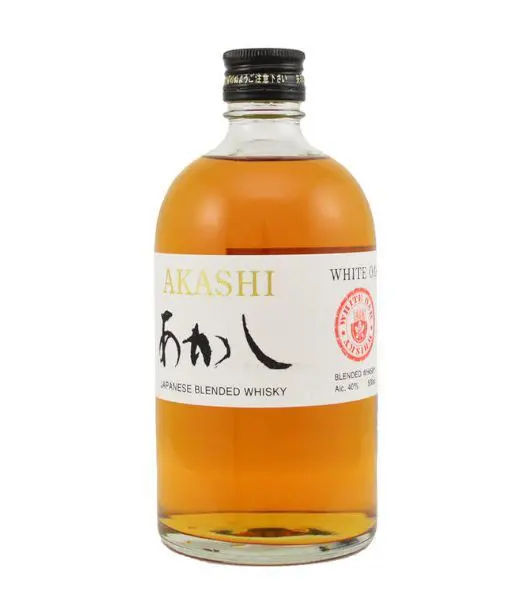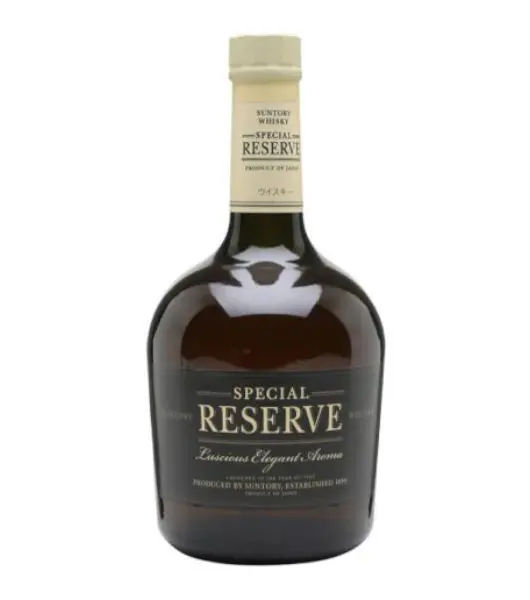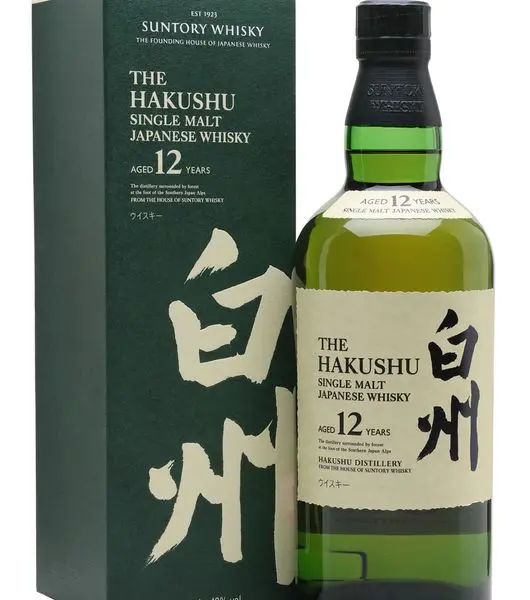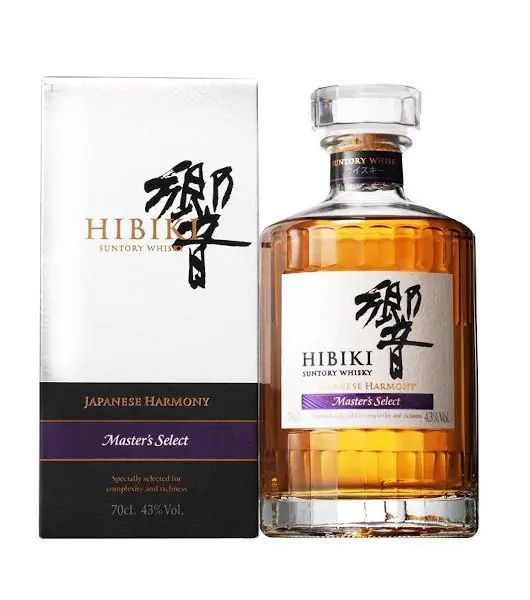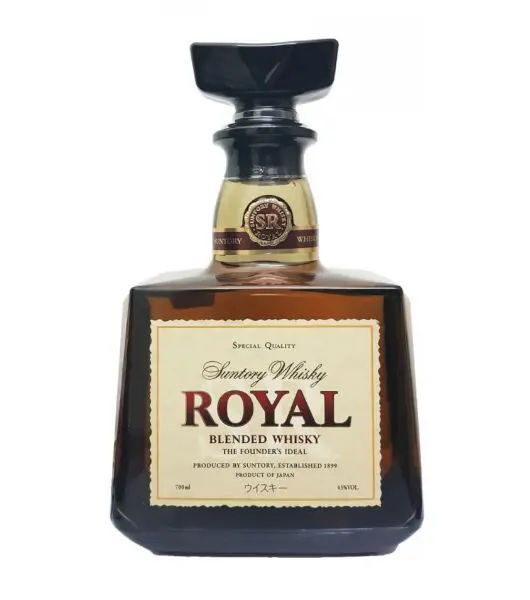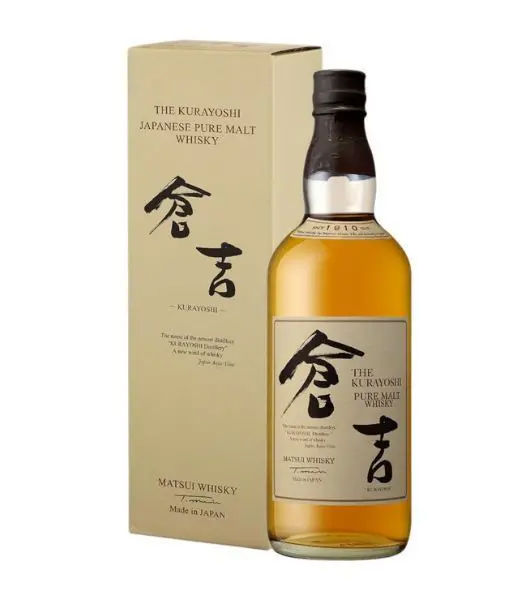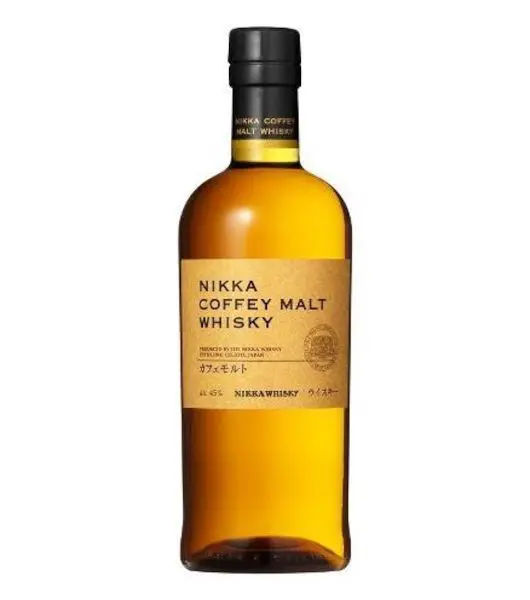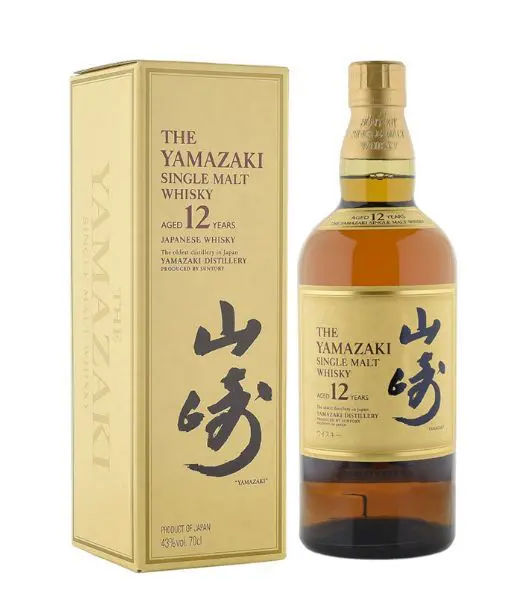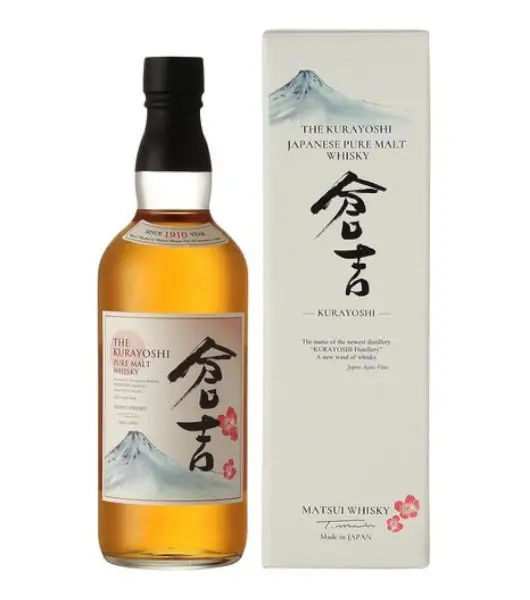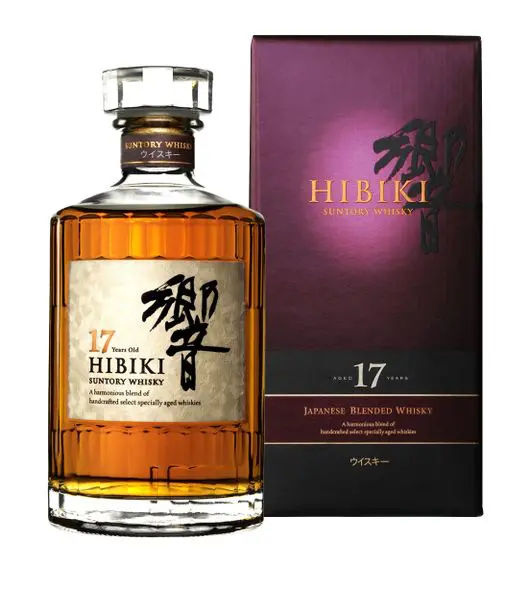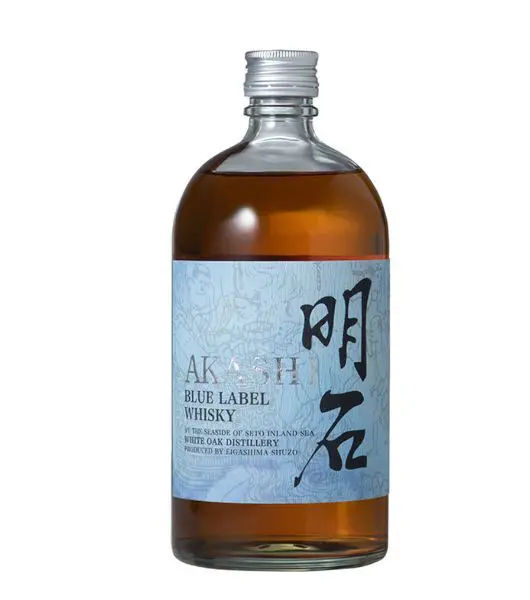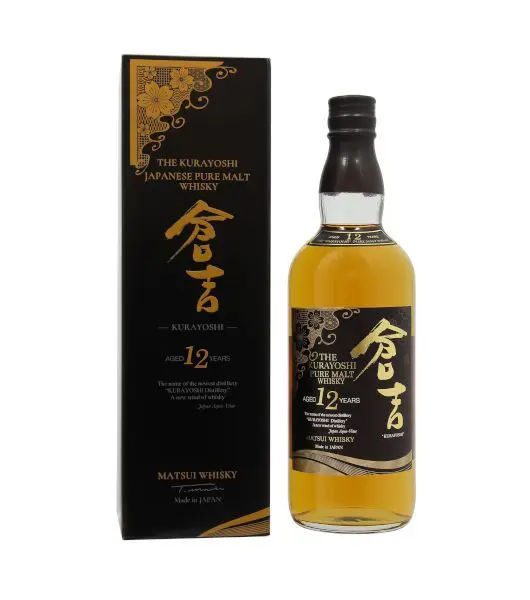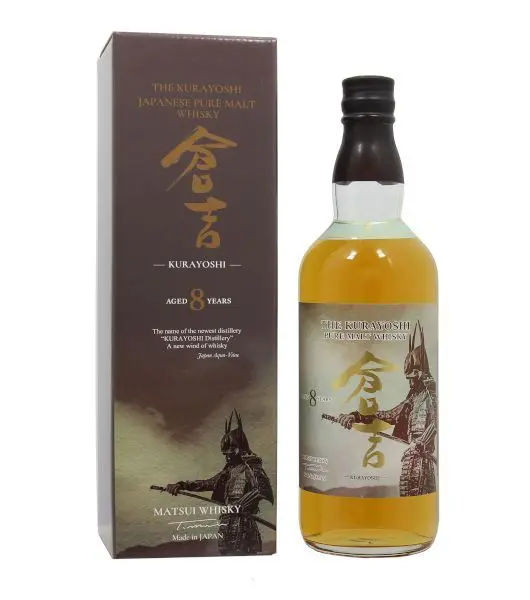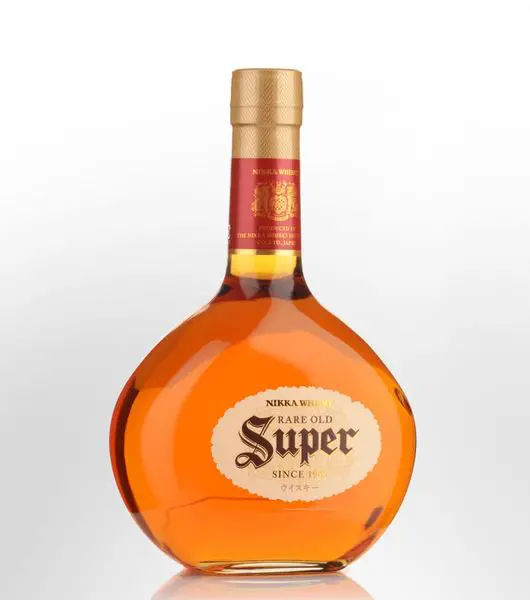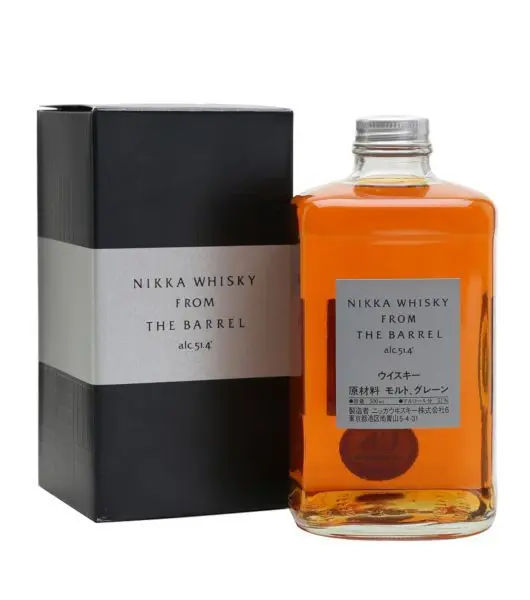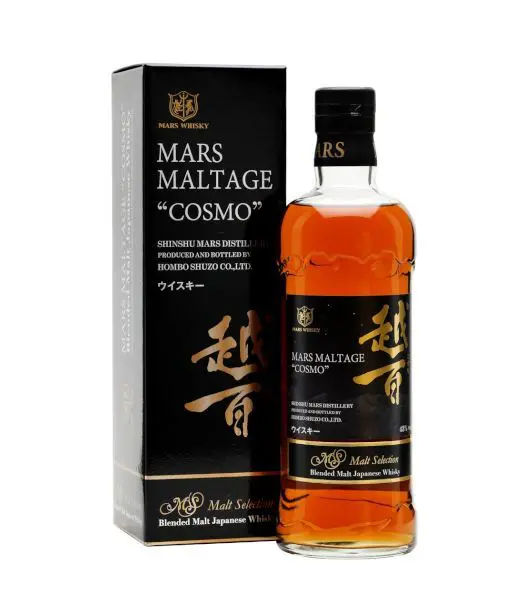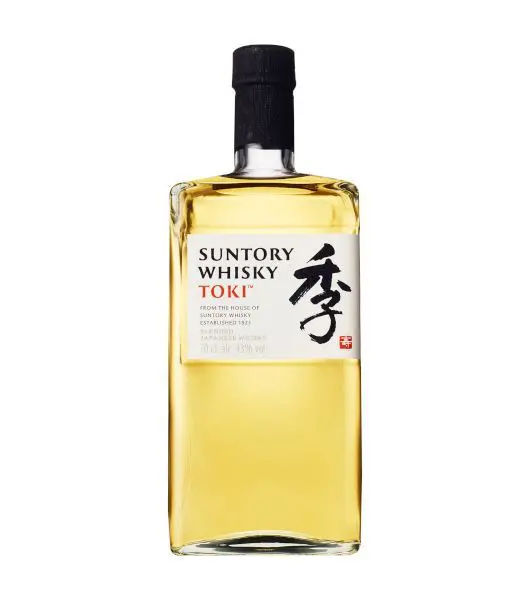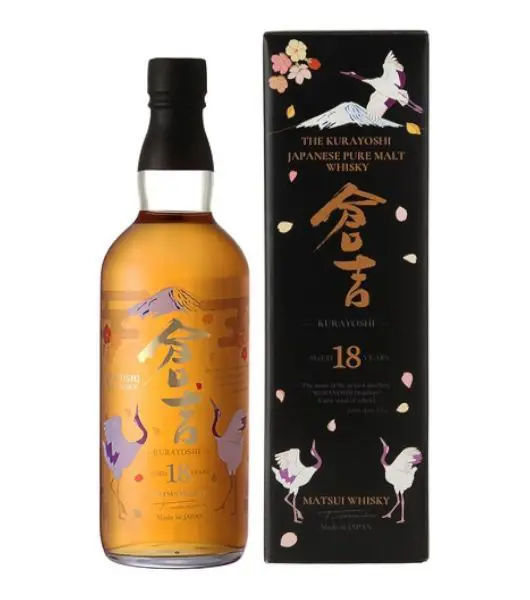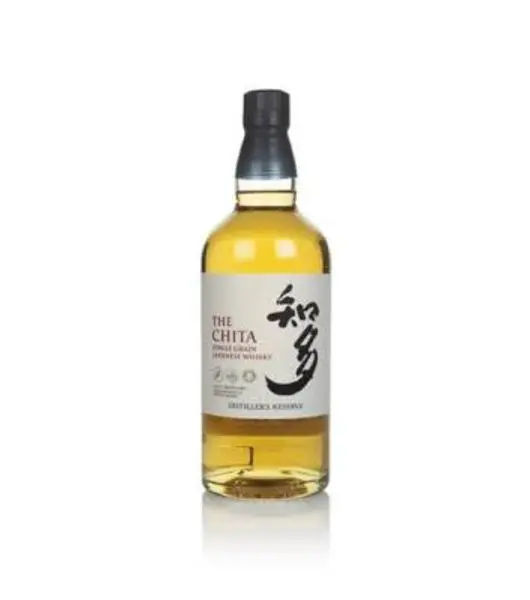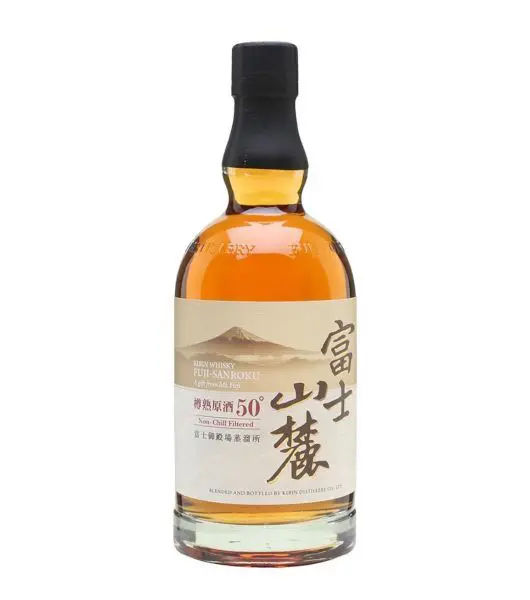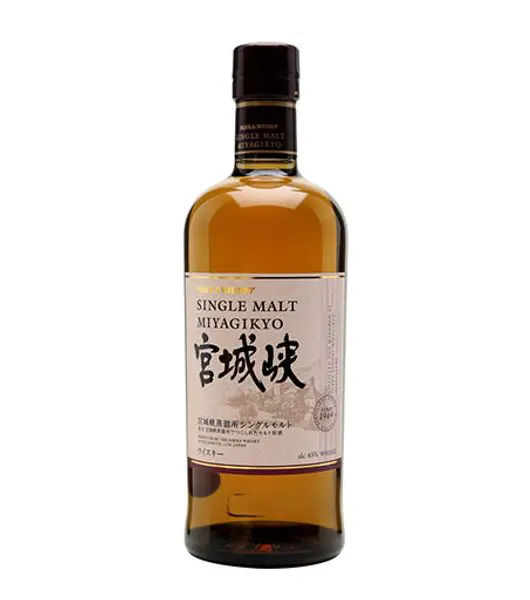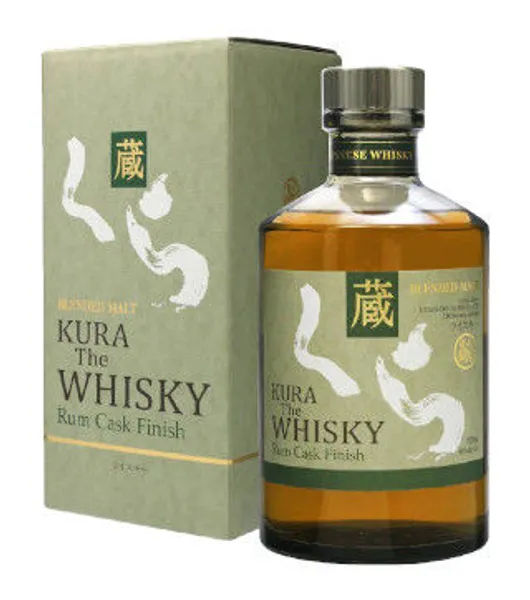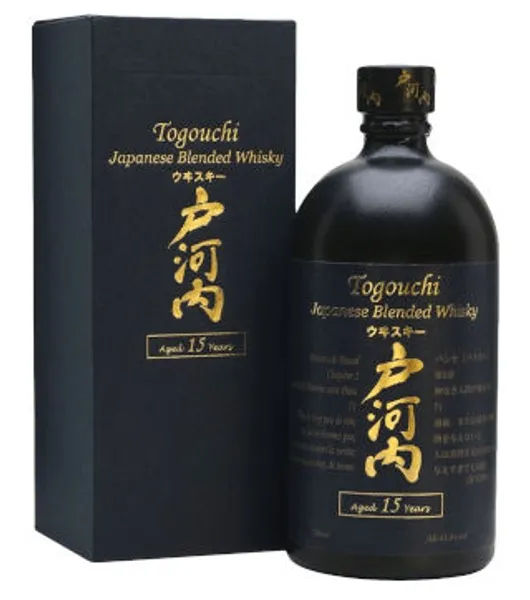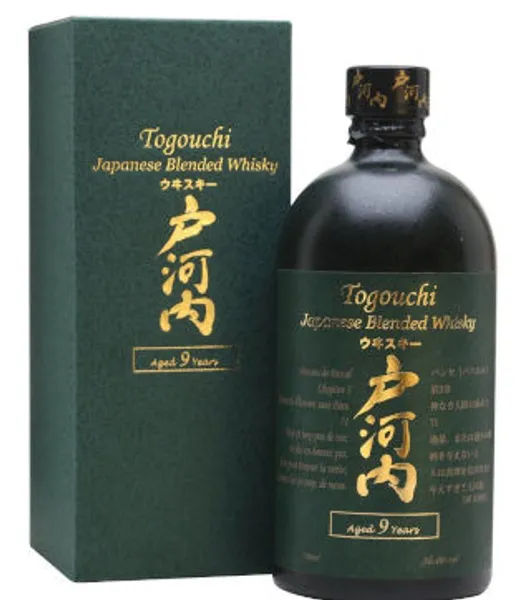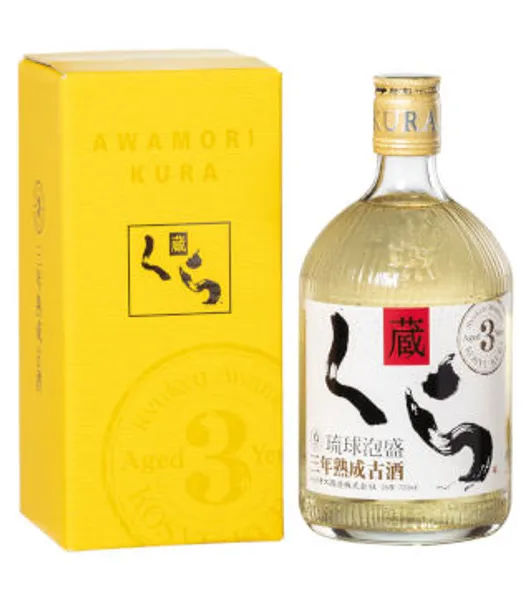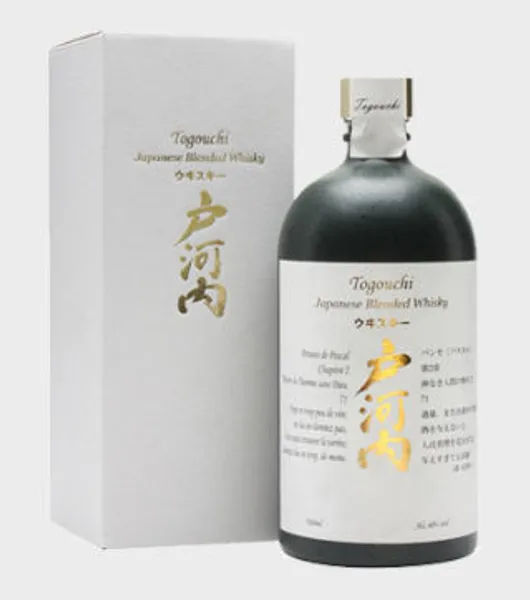Japanese Whisky
- 43% ABV750 mlsuntory whiskyKES 10,000
- 43% ABV750 mlhibiki suntory whiskyKES 37,500
- 43% ABV700 mlHibiki Harmony Master's Select Limited EditionKES 56,000Out of stock
- 45% ABV750 mlnikka yoichi single maltKES 24,000
- 43% ABV750 mlthe yamazaki single maltKES 39,700
- 43% ABV750 mlthe hakushu single maltKES 23,000
- 43% ABV750 mlchita sunctory whiskyKES 14,000
- 43% ABV750 mlnikka taketsure 12 years pure maltKES 22,000
- 40% ABV750 mliwai japanese whiskyKES 10,000
- 43% ABV750 mlnikka taketsuru pure maltKES 11,500
- 40% ABV750 mliwai traditional whiskyKES 10,000
- 45% ABV700 mlNikka coffey grain whiskyKES 13,500
- 40% ABV500 mlAkashi RedKES 5,500
- 43% ABV700 mlNikkka super rareKES 9,700
- 43% ABV700 mlYamazaki 25 yearsKES 985,700Out of stock
- 48% ABV700 mlYamazaki Bourbon Barrel 2013KES 180,750Out of stock
- 40% ABV500 mlAkashi white OakKES 5,900
- 40% ABV700 mlNikka blendedKES 9,799
- 40% ABV700 mlAkashi White Toji BlendKES 7,900
- 43% ABV700 mlHibiki 21 years oldKES 130,600Out of stock
- 43% ABV750 mlSuntory old whiskyKES 10,700
- 43% ABV750 mlSuntory whisky special reserveKES 13,799
- 40% ABV700 mlYamazaki 10 yearsKES 28,300
- 48% ABV700 mlYamazaki sherry cask 2016KES 817,000Out of stock
- 43% ABV700 mlHakushu 12 yearsKES 34,900
- 43% ABV700 mlHibiki Japanese Harmony Masters SelectKES 36,500
- 54% ABV700 mlYamazaki 15 yearsKES 155,000Out of stock
- 43% ABV750 mlSuntory royal blended whiskyKES 16,350
- 51% ABV500 mlNikkka from the barrelKES 8,630
- 43% ABV750 mlKurayoshi Pure MaltKES 17,300
- 45% ABV700 mlNikka coffey malt whiskyKES 13,400
- 43% ABV700 mlHakushu 18 yearsKES 72,000
- 43% ABV700 mlYamazaki 12 years single malt whiskyKES 39,650
- 43% ABV750 mlKurayoshi Pure Malt Sherry CaskKES 17,899
- 40% ABV700 mlNikka all maltKES 8,500
- 43% ABV700 mlThe Nikka premiumKES 21,300
- 43% ABV700 mlNikka TailoredKES 17,500
- 43% ABV700 mlHibiki 17 yearsKES 46,600Out of stock
- 43% ABV700 mlNikkka Pure Malt RedKES 10,800
- 43% ABV700 mlYamazaki 18 yearsKES 82,000Out of stock
- 40% ABV700 mlAkashi Blue LabelKES 5,900
- 43% ABV750 mlKurayoshi Pure Malt 12 yearsKES 19,750
- 43% ABV500 mlSuntory Hibiki 12 yearsKES 45,900Out of stock
- 37% ABV700 mlNikka black clearKES 5,799
- 40% ABV700 mlNikkka DaysKES 10,300
- 43% ABV750 mlKurayoshi Pure Malt 8 YearsKES 16,350
- 43% ABV750 mlHibiki Japanese HarmonyKES 36,500
- 48% ABV700 mlYamazaki Mizunara 2013KES 518,650Out of stock
- 43% ABV700 mlNikka Rare Old SuperKES 8,400
- 51% ABV500 mlNikka Whisky From The BarrelKES 9,750
- 48% ABV500 mlKamiki WhiskyKES 8,630
- 43% ABV700 mlMars Maltage CosmoKES 10,850
- 43% ABV750 mlSuntory Whisky TokiKES 9,875
- 43% ABV500 mlNikka pure malt blackKES 10,900
- 43% ABV750 mlKurayoshi Pure Malt 18 YearsKES 30,700
- 40% ABV750 mlHombo Iwai Japanese WhiskyKES 9,980
- 43% ABV700 mlThe Chita SunctoryKES 13,499
- 50% ABV700 mlKirin Fuji Sanroku WhiskyKES 7,850
- 40% ABV750 mlNikka Days Blended WhiskyKES 9,349
- 43% ABV750 mlThe Yamazaki Distillers Reserve Single Malt WhiskyKES 27,899
- 45% ABV700 mlNikka MiyagikyoKES 15,990
- 43% ABV700 mlKura Pure MaltKES 14,700
- 40% ABV700 mlYamazakura WhiskyKES 7,900
- 43% ABV700 mlTogouchi 15 YearsKES 22,650
- 40% ABV700 mlTogouchi 9 YearsKES 13,800
- 40% ABV750 mlKura Awamori 3 YearsKES 7,700
- 43% ABV700 mlHibiki Blenders ChoiceKES 39,400
- 40% ABV700 mlTogouchi Japanese Blended WhiskyKES 8,600
- 40% ABV700 mlKura Blended Malt Rum Cask FinishKES 14,999
Introduction
Where did Whiskey originate? How do you enjoy whiskey?
Whiskey has become a popular drink over time. A share of the volume of alcohol consumed in Kenya is whiskey. Whiskey drink is adaptable and can be taken neat or with cocktails. It has different flavors and notes, such as oak, honey, cherry, vanilla, and other fruit notes. Whiskey is a complex drink. The versatility of whiskey has contributed to its growth and wide acceptability as an all-occasion drink. Drinks Vine an online whisky shop, brings you a wide variety of whisky brands in Kenya.
Whiskey (or whisky) is a distillation of different liquors made of fermented cereal grains such as wheat, barley, or corn. We have a variety of whisky brands in Kenya due to the difference in the distillation process, place of processing, and how they are aged. Whiskey or whisky is interchangeably used in Kenya without a debate as it would be in the United States, Ireland, Scotland, and several other countries.
Whisky has maintained high quality due to the robust legal guidance in its production. It also has historical and geographical aspects. For example, whiskey should be Scotch if produced within Scotland. Bourbon has to be distilled in America. Japanese whiskey has to be from Japan.
The history of whiskey is from different perspectives dependent on countries. According to Scotch Whisky Experience, Moncks brought about the distillation process in Scotch as they were producing medicine. It’s believed farmers picked up the process, and fermented and distilled their excess barley and corn. Scottish Exchequer Rolls for 1494 is the oldest mention of whisky in Scotch as Mr. J Marshall Robb puts it in his book, Scotch Whisky. In the United State, the art of distillation was introduced by European colonialism.
Types of Whiskey
Whiskey comes in different forms i.e single mart, blended or single grain this can be confusing. We dive deep into these types of whiskey to bring out the difference.
Single Malt
Single malt is whisky from a single distillery. Single malt is a blend of whiskey from different casks but all these casks must come from a single distillery hence the name ‘Single”. Malt is strictly for whiskey made from barley. Hence we can say, Single Malt is whiskey from barley from a single distillery. Examples of single malt are Glenfiddich 12 years, glen grant. For more on single malt and prices
Single grain Whisky
Single grain whisky has to be produced in a single distillery but unlike single malt, the production is not limited to malted barley. Wheat, corn, or rye, malted or unmalted can be used for single grain whisky production. Single grain whiskey has higher sweeter notes compared to single malt.
Blended Whisky
Blending whiskey lowers the strong flavors associated with single malt scotch which puts many people away. Any mix of scotch whiskeys was considered blended scotch before 2019. With the change in Scotch whisky regulations, a blend has to be a combination of Single malt whisky and Single grain whiskies. The ratio of malt and grain can vary.
Blended Scotch whisky in new regulations gave birth to two other categories i.e blended grain Scotch whisky and blended malt Scotch whisky.
Blended grain Scotch Whisky is a blend of single grain scotch whiskies from different distilleries. Blended grain Scotch Whiskies are rare to get in the market. Only a few distilleries are producing these blended whiskies.
Blended malt Scotch Whisky is a blend of single malt scotch whiskies from different distilleries. Most distilleries produce blended malt Scotch whiskies.
Bourbon Whisky
Bourbon is a type of whisky produced in the United States. For a whisky to qualify as a bourbon ;
- Must be distilled and aged in the United States .
- Be 51% of corn distillation, the remaining components can be from wheat, rye, or barley.
- New, charred barrels are used for aging bourbon. The barrel used must be made from American white oak.
- Bourbon can be aged for a few months or years. The aging statement on the bottle indicates the period it has been aged in the barrels.
- Should be at least 80% proof i.e 40% of alcohol by volume when bottled.
- Examples of Bourbon whiskey are Woodford Reserve 2022, Knob Creek Kentucky Straight, Bulleit bourbon, and More.
Tennessee Whisky
Spirit distilled in Tennessee State is considered Tennessee whisky by state law. For a whisky to be considered a Tennessee it has to :
- Be 51% distilled from corn
- Be distilled in Tennessee state
- New charred barrels made of oak must be used.
- Must undergo Lincoln County process
- Prichard’s distillery is exempted from the charcoal filtration requirement for Tennessee whisky. Jack Daniels is an example of Tennessee whisky that has gained popularity across the globe. Other distilleries located in Tennessee are George Dickel, Popcorn Sutton, and Corsair.
Irish Whisky
Irish whiskey is one of the whiskies that had turbulent times, being high or low. For a whisky to be categorized as Irish whisky :
- Must be made and matured in Ireland or Northern Ireland
- Aging has to be done on wooden casks for a minimum of 3 years. Using simply wood as a legal specification for casks widens the opportunity for experimenting compared to Scotch whiskey where oak casks are specified.
The most unique Irish whiskey is the Single Pot Still where a pot still must be used in making instead of a column still. For it to qualify as a single Pot still, it must still be made from a single distillery.
Japanese Whisky
Japanese whisky is distilled just as scotch is done. It would be a misconception to think there is no difference between Japanese whisky and Scotch Whisky. In Japan, a distillery can produce different styles, and use different stills, mush bills, or profiles to go to the brand's blend.
The difference is the distillery's still shape, water used, and detailed process. Japanese whisky is becoming popular and winning awards in the global arena. Some of the Japanese whisky brands in Kenya are; Nikka taketsure 12 years pure malt, Suntory whisky, and Pure Malt Black Nikka Whisky.
Scotch whisky
For a whisky to qualify as a Scotch it must be distilled and bottled in Scotland. The whisky is distilled twice. It comes in single malt, single grain, blended Scotch, Blended malt, or blended grain.
- Single Malt: Scotch whisky made of barley and produced in a single distillery
- Single Grain Scotch: Refers to Scotch whisky made by incorporating other grains into the mush. It has to be from a single distillery. Single grain scotch is rare in the market. Mostly the single grain produced is used for blends.
- Blended Scotch: Blending single malt with single grains gives blended Scotch whisky.
- Blended Grain: Made by mixing single grain whiskies from different distilleries
- Blended Malt: A mixture of single malt from different distilleries
Indian Whisky
Indian whiskey is an Indian-made liquor prepared by blending neutral spirits usually distilled from fermented molasses. Indian whiskey has no set standards like distillation from cereals or maturity period; hence outside India, many would refer to it as rum. Most Indian whiskeys have not qualified for the E.U. standards due to the use of molasses, neutral alcohol, and use of flavorings. Such spirits are generally cheap to produce compared to other genuine whiskeys.
Whisky neat, with water or Cocktails?
Whisky neat
Whisky complexity allows different ways of drinking. Taking neat means straight from the bottle to a lowball glass without any dilution or additives. Whisky neat should be sipped slowly to appreciate the notes. Don’t take whisky as a shot of liquor. If you are a whisky beginner bourbon would be a good choice due to its sweeter flavors that tone down alcohol burns. For spice lovers, rye whiskey is a great drink.
Whisky with water
Björn Karlsson, a chemist at Linnæus University in Sweden and the paper’s co-author, said: “What came out from our study is that adding water to whisky should make it taste better.” Whisky has compounds that repel water hence adding drops of water makes the flavors float on the surface.
Whisky Cocktails
Whisky cocktails break down the complexity of whisky. Whisky beginners can be introduced to cocktails before heading to neat drinking. Anyone who has been put away by the strong flavor of whiskey taken neat can be re-introduced through cocktails. There are different whisky cocktails out there such as Bourbon Mojito, Whiskey and Apple Juice, Smoky Sour, highball, Irish whiskey old fashioned, mint julep, and more.
Conclusion
Whisky has a rich variety of drinks to choose from. Whiskies offered by drinks vine range from distillation, Place of distillation, blends, aging, and more. See more on whisky from whisky brands in Kenya.
